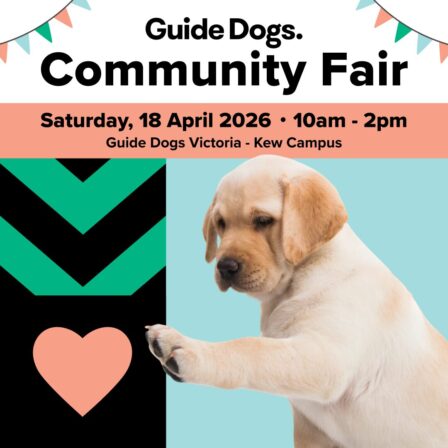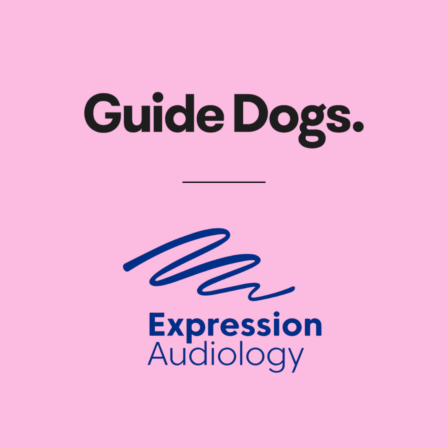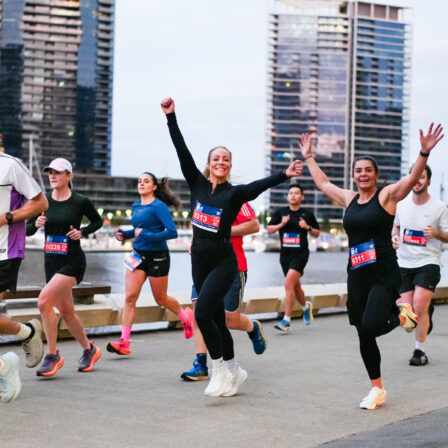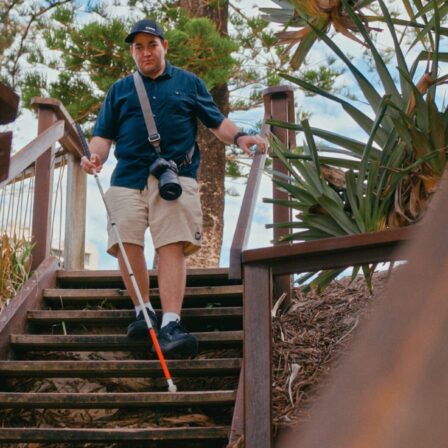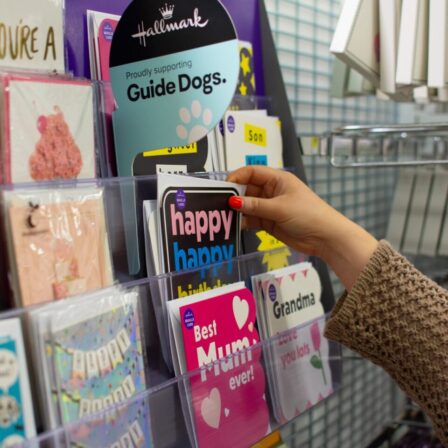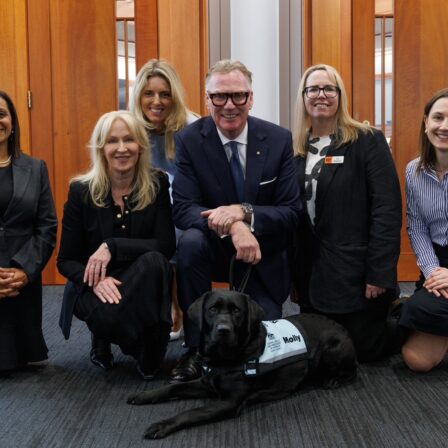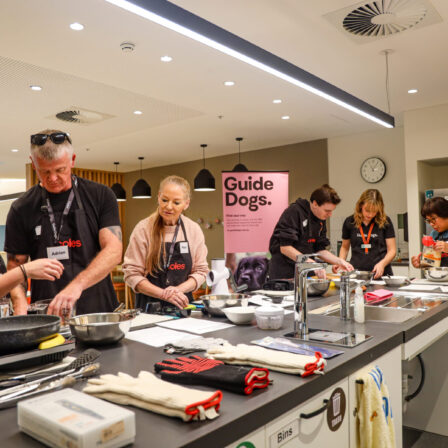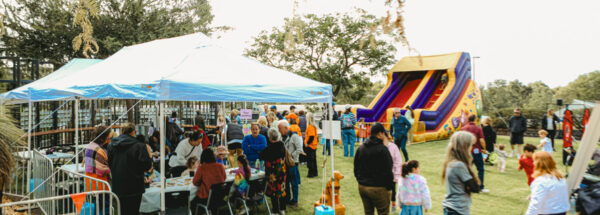News
One in three Guide Dogs Handlers refused entry or service because of their Guide Dog
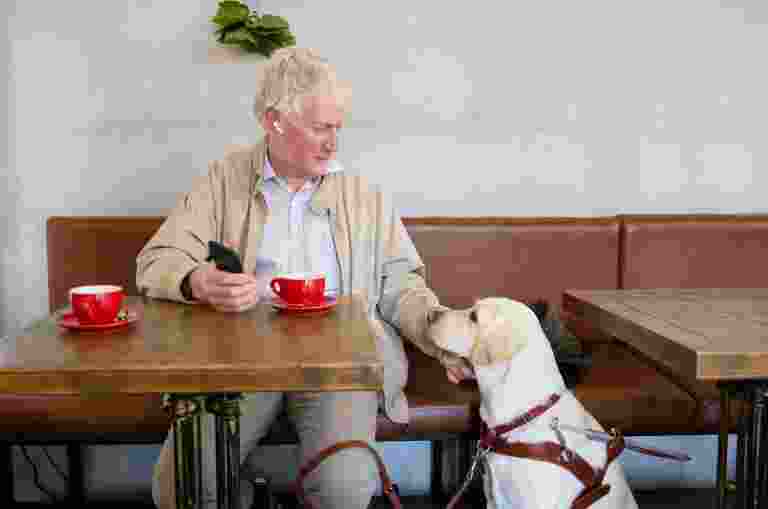
March 2021: Over 35 per cent of Guide Dogs Handlers across Australia have reported being refused entry to a public place or service because of their Guide Dog in the past 12 months, according to a new Client survey by Guide Dogs Australia.
Taxis and rideshare vehicles are the worst offenders, with 68 per cent of those who reported refusals saying drivers had refused them access to their vehicle. Food establishments were next with 45 per cent and retail outlets at 28 per cent.
Guide Dog Handlers said this made them primarily feel frustrated and annoyed, but also angry, upset and often embarrassed.
In response, Guide Dogs Australia’s Access All Areas campaign aims to remind businesses, service industries and the community that a Guide Dog in harness is legally allowed to enter all public places. It is an offence to deny or charge a fee for the entry of a Guide Dog.
“While most Australians generally do the right thing and provide open access to Guide Dog Handlers, the Client survey clearly reveals a lack of knowledge and awareness to the Access Rights of Guide Dogs,” said Guide Dog Victoria CEO Karen Hayes.
“Restricting access to Guide Dog Handlers has a very real impact on those individuals, especially when we consider the added impact of COVID-19. Denial of access can cause people to change their daily routine by choosing to avoid certain public areas or modes of transport. This ultimately means withdrawing from going about their day-to-day life when a Guide Dog is meant to maximise independence and mobility,” said Ms Hayes.
And while COVID-19 and the subsequent restrictions haven’t directly impacted access to venues for most Guide Dogs Handlers, they are reporting that social distancing barriers, hand hygiene stations and QR check-in codes have hindered participation in the community. Overall, 56 per cent of Clients surveyed said reduced social interaction was the most difficult things about the pandemic.
There were some positive trends, with more than half of Guide Dog Handlers reporting increased access to health services via telepractice and information online. There has also been a strong trend toward self-advocacy, with 64 per cent of Handlers explaining access laws until they were allowed entry and only 8 per cent not contesting the denial in any way.
The Access All Areas campaign is lead by an awareness video, directed by comedian, actor and Guide Dogs Ambassador, Michelle Brasier and featuring Broden Kelly of Aunty Donna fame. The video, entitled Access is no Joke, uses humour to highlight the unreasonable nature of Guide Dog refusals.
“The special bond and partnership between a person and their Guide Dog opens up opportunities and experiences. Nobody should be shut out from having a laugh or enjoying a night out and that’s why Guide Dogs Handlers and their Guide Dogs, are access all areas,” Michelle Brasier said.
Guide Dogs Clients – both Guide Dogs Handlers and people with low vision or blindness who use white canes or technology to assist their safe navigation – also share their own experiences with access challenges through a series of vox pop videos.
“Personally, I’ve always had great experiences on public transport, and have found bus and taxi drives to be so considerate of my Guide Dog. Unfortunately, I do have friends that been refused access to buses and taxis because of their Guide Dog,” said Guide Dog Handler, Erin.
“This can leave them on the side of the road, on a 40-degree day, with no way to get from A to B,” she said.
The campaign also features resources for people with low vision or blindness to advocate on their own behalf, as well as resources so businesses can make their premises or services more welcoming for everybody.
Guide Dogs’ advocacy efforts extend to working with industry bodies, government departments and private companies to provide access consulting services and training to ensure places in the community – including private property, public environments, workplaces, sporting venues, and a range of other spaces – comply with Australian Disability Access Regulations.
“13cabs and Guide Dogs Australia has a long standing, ongoing and important relationship; designed to maintain the highest standards of Driver education and awareness,” said Olivia Barry, Head of Engagement at 13cabs.
“13cabs Drivers play an important role in transporting our community, and we want Drivers to understand and meet the needs of those customers who have low vision or blindness, and travel with Guide Dogs.
“Our recent collaboration, producing a Driver training video to be shared nationally with 13cabs Drivers, has been a priority and an indication of the innovative ways we can work together into the future,” Ms Barry said.
This campaign was made possible thanks to the Community Inclusion Grant from the State Trustees Australia Foundation. Thank you for supporting access and inclusion for all Australians.
